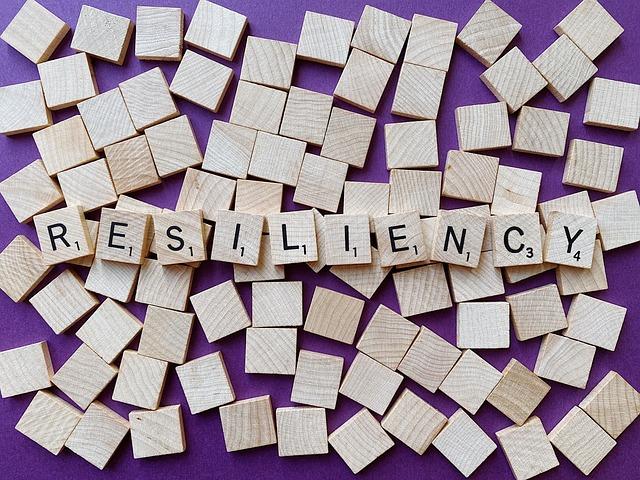Rejection is a universal experience, a rite of passage that, while often painful, is an inevitable part of the human journey. When it comes to the realm of dating, the sting of rejection can feel particularly personal, leaving emotional bruises that are sometimes hard to heal. Yet, within this discomfort lies an opportunity for growth, resilience, and self-discovery. In the aftermath of a declined date, the challenge becomes not just to endure, but to emerge emotionally stronger. This article explores practical strategies and insights to help you navigate the turbulent waters of romantic rejection with grace and fortitude, transforming what might feel like an end into a new beginning. Whether you’re nursing a bruised ego or grappling with feelings of inadequacy, we’re here to guide you on a journey toward emotional strength and renewed self-assurance.
Understanding the Impact of Rejection on Your Emotional Well-being
Experiencing rejection can stir a complex array of emotions, from disappointment to self-doubt. It’s important to acknowledge these feelings rather than suppress them. Embrace the opportunity to understand your emotional triggers and how they influence your self-esteem. By doing so, you can build resilience and foster a healthier relationship with your emotions. Here are some strategies to help you maintain emotional strength after rejection:
- Reflect on the Experience: Take time to think about what happened without assigning blame to yourself or the other person. This can provide clarity and insight for future interactions.
- Practice Self-Compassion: Treat yourself with kindness and avoid harsh self-criticism. Remember, rejection is a part of life and does not define your worth.
- Seek Support: Reach out to friends or family members who can offer a listening ear and perspective. Sharing your feelings can help alleviate emotional burdens.
- Engage in Activities You Love: Distract yourself with hobbies or activities that bring joy and fulfillment. This can help shift your focus away from negative emotions.
Understanding and managing your emotional responses to rejection can empower you to approach future relationships with a renewed sense of confidence and emotional fortitude.

Embracing Self-compassion and Personal Growth
When faced with the sting of rejection, it’s vital to treat yourself with the same kindness you would offer a dear friend. Self-compassion is not just a buzzword but a powerful tool in maintaining emotional resilience. Instead of dwelling on perceived shortcomings, recognize the bravery it took to put yourself out there. Reflect on the experience without judgment, acknowledging your feelings while understanding that rejection is a universal experience.
- Acknowledge your feelings: Allow yourself to feel and process the disappointment.
- Challenge negative self-talk: Replace critical thoughts with affirmations of self-worth.
- Engage in self-care: Take time for activities that nourish your body and mind.
Personal growth often blooms from the soil of challenging experiences. Use this opportunity to explore areas for growth that align with your authentic self. Consider this a chance to deepen your understanding of what you truly seek in relationships. By embracing self-compassion, you cultivate a more resilient, empowered version of yourself ready for future connections.

Building a Supportive Network for Emotional Resilience
Facing rejection can be a tough experience, but surrounding yourself with a supportive network can significantly enhance your emotional resilience. It’s crucial to identify the people who genuinely care about your well-being. These individuals can offer valuable perspectives, reminding you that rejection is just a stepping stone, not a reflection of your self-worth. Lean on your friends and family, those who can provide a listening ear and help you process your feelings without judgment. Engage in open conversations where you can express your emotions freely, knowing you’re in a safe space.
Beyond personal connections, consider joining communities that share your interests or values. Online forums, local clubs, or support groups can offer fresh insights and camaraderie. These platforms can introduce you to others who have navigated similar experiences, providing a sense of belonging and understanding. By building these connections, you’re not just seeking support but also creating opportunities to grow and learn from others’ stories. Remember, the strength of your network lies in its diversity, offering various perspectives and experiences to draw from during challenging times.

Transforming Rejection into Opportunities for New Connections
Experiencing rejection can be challenging, but it can also be a gateway to building new and meaningful relationships. Instead of viewing rejection as a closed door, consider it a chance to broaden your horizons. Here’s how you can pivot this experience into opportunities for connection:
- Embrace Self-Reflection: Use this time to understand your preferences and values better. What did this experience teach you about what you truly seek in a relationship?
- Expand Your Social Circles: Engage in activities or join groups that align with your interests. Whether it’s a book club, a hiking group, or a cooking class, these spaces are fertile ground for meeting like-minded individuals.
- Foster Genuine Curiosity: Approach new interactions with an open mind. Ask questions, listen actively, and show genuine interest in others. This not only builds rapport but also opens doors to unexpected friendships.
By shifting your perspective, rejection can transform from a setback into a stepping stone towards enriching your social network. With each new connection, you are building a tapestry of experiences that can lead to unexpected and fulfilling relationships.








